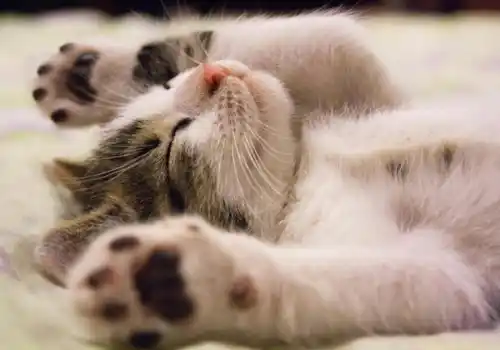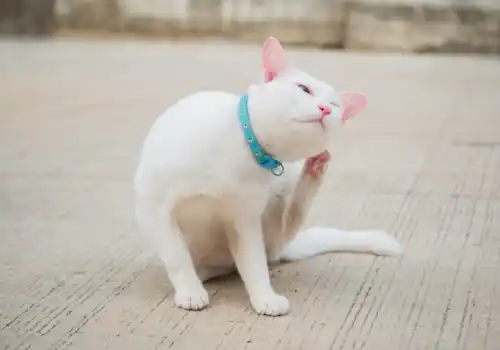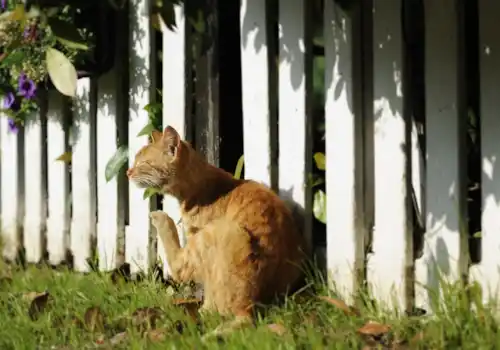We’ve started our own book club! Each month, we’ll be looking at a cat-themed story and you can get involved too.
THE BOOK
‘The Guest Cat’ by Takashi Hiraide
Written by Japanese poet and novelist Takashi Hiraide, the novel is spiritual and moving, and investigates the nature of life. The story is based around a couple in their thirties that live in a small rented cottage in Tokyo. One is a writer and the other is a proofreader. They no longer have anything to say to each other — until one day, a cat invites itself in.
DISCUSSING THE BOOK…
In uncertain times, it is reassuring to read a book such as ‘The Guest Cat’. It is both a beautifully told story with a cat as its protagonist, and a reminder that life is like the ebb and flow of the tide. We don’t know what it has in store for us, but it is evident not every moment will be joyful. Thankfully, that also reminds us that not every moment will be painful. We will all experience ups and downs but we can pull through our wintery seasons enticed by the promise of spring. And at the time of re-reading this jewel of a book, and writing this now, the promise of spring is thick in the air. Crocuses are pushing through the grass. There are warmer days.
‘The Guest Cat’ is a quiet little book that has had a huge impact. It was a bestseller in the UK, the US, and France — unusual for a poetic novella. The book was also the winner of Japan’s Kiyama Shohei Literary Award. Takashi Hiraide, its author, is a poet, and it shows; the language is staggeringly beautiful, touching on poetic truths about life and death. Not an awful lot happens, but after reading it, one cannot help but feel changed, closer to the world, and ever so slightly more alive.
The premise is universal and relatable. It is the late 1980s, a time of rapid change and soaring prices. A freelancing couple live in a small rented cottage in a quiet part of Tokyo. One is a writer, the other a proofreader. At the same time, there is uncertainty regarding the future in this age marked by change. Says the narrator: “Looking back on it now, I’d say one’s 30s are a cruel age. At this point, I think of them as a time I whiled away unaware of the tide that can suddenly pull you out, beyond the shallows, into the sea of hardship, and even death.” One day, a visiting cat arrives and re-infuses the couple’s life with purpose. The cat’s named Chibi, whose name translates as ‘little one.’
THE I-NOVEL
Nothing that happens in ‘The Guest Cat’ is fabricated. It belongs to the Japanese I-novel tradition, also described as private fiction. Author Hiraide tells me over email: “This genre originates from the traditional Japanese sense of time and nature, and takes the form of novels, which emerged in the 1920s and are characteristic of the modern Japanese spiritual climate.”
The closest comparisons we have in the anglophone literary world are the genre autofiction, a novel which borrows heavily from reality, and the memoir. Hiraide elaborates on the conventions of the I-novel: “The intention is to portray the author’s private life as it really is, and in the pursuit of realism without deception or fabrication; such authors risk exposing too much of themselves.
“The aspect of the I-novel characterises the way the Japanese handle the ‘I,’ the way they submerge the subject in descriptions of nature and daily life. On the one hand, this genre invented a way to deal with transcendental matters such as death, the universe, and nature that lurk in the midst of
everyday life, while remaining in the midst of it. On the positive side, the Japanese I-novel deals minutely with the important theme of how to make the small ‘I’ disappear, in contrast to the vastness of the universe and nature.”
The book in many ways touches upon a philosophical idea that’s quintessentially Japanese: mono no aware, or the awareness of the transience of things. We see it in the garden with its seasons, but also in the ageing, illnesses, and deaths of friends. There are throughout the book also references to Fortuna, the classical Roman goddess responsible for good or back luck. One never knows what her wheel of fortune might have in store for you, though its turning is inevitable. Change is something so many of us are going through right now with the pandemic and the private upheavals in our own lives. Something akin to mono no aware may well be affecting us, too, on an emotional level. Our lives are transforming, we recall our fragility, our own mortality, all the while we can see the year is turning.
FELINE FORTUNE
In Japanese folklore, cats are associated with good fortune, and today cats still hold a special place in Japanese society. Cat cafe culture started in Taiwan, but really exploded in Japan. Cats have also become integral to pop culture and kawaii culture (literally ‘Cute’ culture), with icons such as Hello Kitty and Jiji from Studio Ghibli’s Kiki’s Delivery Service. They feature frequently in Japanese literature as narrators, such as in So- seki Natsume’s ‘I am a Cat’, or as omens, as in many books written by Haruki Murakami. ‘The Guest Cat’, or Chibi, was a real cat, who came into the young couple’s lives much in the same way as Fortuna, or these literary cats as portents of change.
‘The Guest Cat’ is also, in some ways, a poetic ode to the cat lover. The narrator recalls feeling “absolutely disgusted” on witnessing the sweet affection oozing from his cat-loving friend’s eyes: “Having devoted themselves to cats, body, and soul, they seem at times utterly indifferent to shame.” With time, the narrator and his wife too, become cat lovers. I’m sure many fellow cat lovers will also be nodding in agreement when reading lines such as this: “For me, Chibi is a friend with whom I share an understanding, and who just happens to have taken on the form of a cat.”
Chibi reminds the narrator and his wife to live with a playfulness they have forgotten. They begin to appreciate the joys in small things: “Having played to her heart’s content, Chibi would come inside and rest for a while. When she began to sleep on the sofa — like a talisman curled gently in the shape of a comma and dug up from a prehistoric archaeological site — a deep sense of happiness arrived, as if the house itself had dreamed this scene.”
Hiraide tells me he doesn’t have any cats anymore, though he remains a cat lover. “Nana came to our house shortly after Chibi’s death in 1990. She was the kitten described as “big sister” in the novel. Nana lived until 2011. After her death, we believed that another kitten would come naturally. But after ten years of waiting, it still hasn’t come. Eventually, we became too old to acquire a cat from an animal shelter.”
Chibi inspires the couple to live fully and consciously, aware of the preciousness of this moment we are living in right now. All cats, I think, have the power to wrench us from complacency and awaken us to life. The brevity of cats’ lives and the joy they give us in that time, the way they know to appreciate the sun on their fur and the flicker of the flame, are a reminder that we too should be aware of this precious gift we are given: life and all its seasons.
What to take away…
‘The Guest Cat’ delves into how cats can teach us to take joy in each moment — and how if we can do that, we can make the most of the gift we call life.
Written by Elizabeth Sulis Kim, who has written for magazines and newspapers including 'The Guardian’, ‘The Independent’, and ‘Glamour’.







